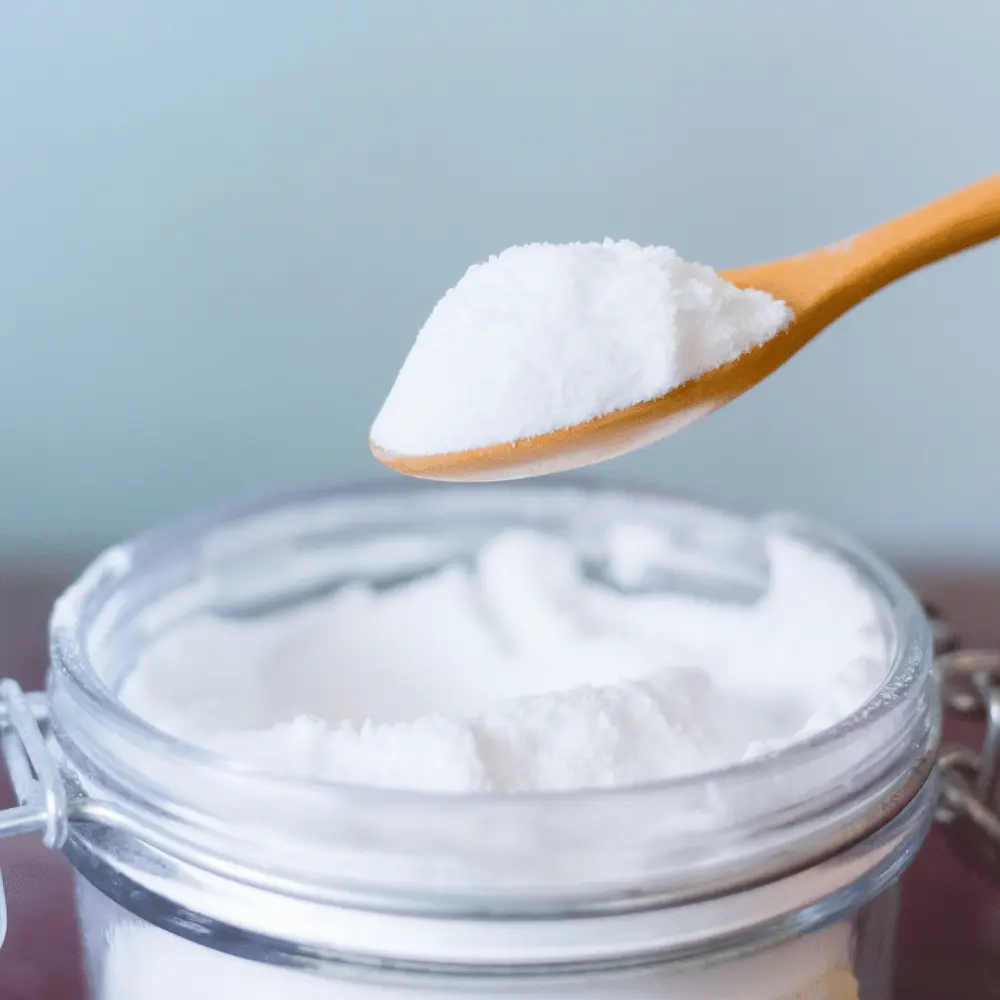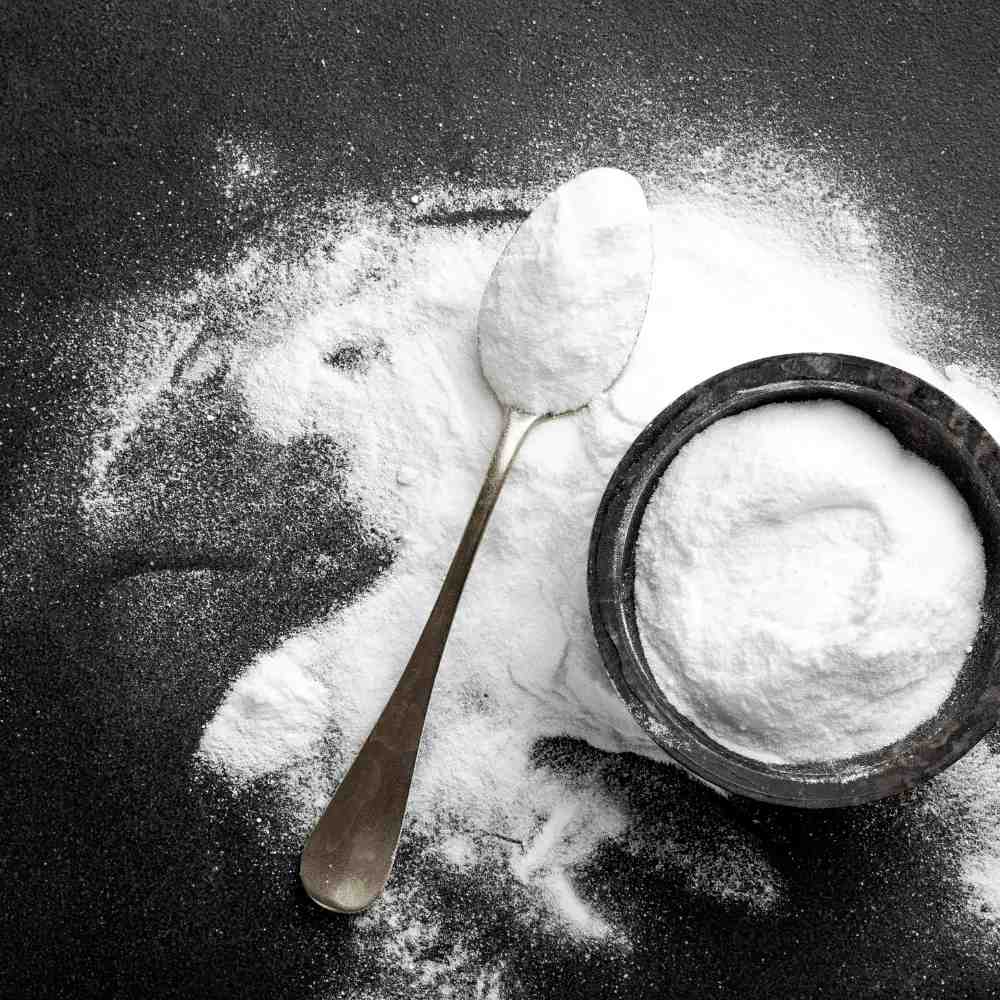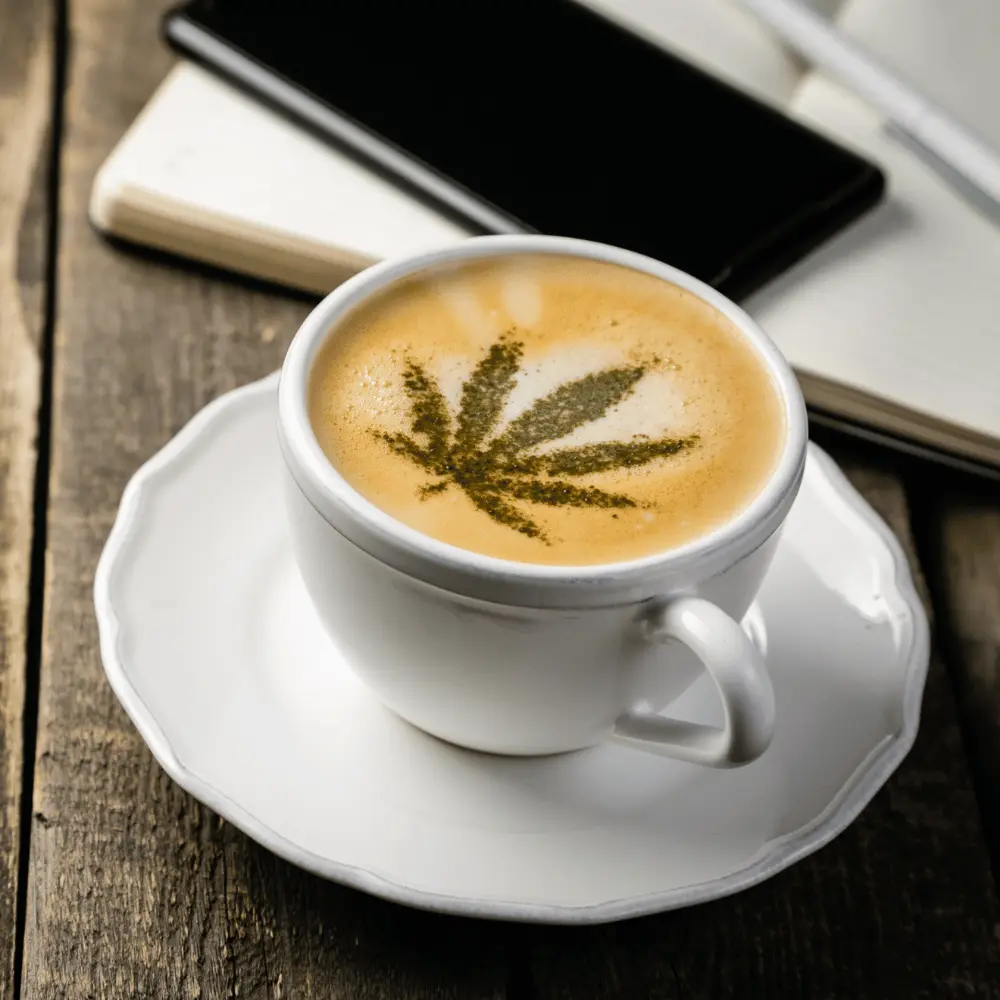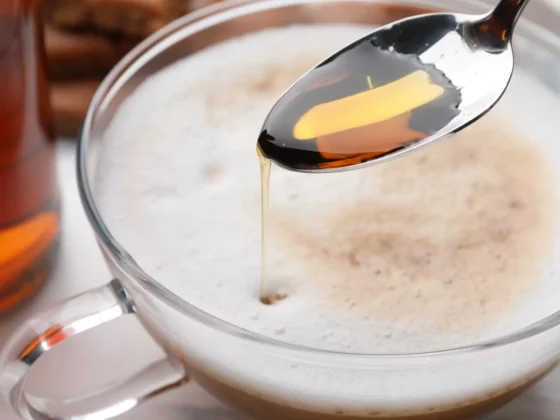Indulge your insatiable craving for a novel coffee experience and transform your humdrum morning routine with an unconventional yet mind-blowing technique. Welcome to the all-encompassing and all-enlightening “Baking Soda in Coffee – The Comprehensive Guide to Enhance Your Coffee Experience.”
For the uninitiated, this revolutionary approach to coffee-making has been a guarded secret among coffee enthusiasts for eons. The rationale behind it is simple yet profound – baking soda is endowed with a remarkable capability to neutralize acidity, resulting in a smoother and more delightful coffee flavor. To unveil the science behind this tantalizing alliance, this guide has been expertly crafted to equip you with all the quintessential know-how and techniques needed to unlock the full potential of your coffee-drinking experience.
Join us as we embark on a riveting expedition that explores every nook and cranny of this remarkable ingredient in your coffee – from the intricacies of its chemistry to the preeminent tips and tricks for mastering the art of crafting the perfect cup of coffee. Brace yourself for a wondrously bizarre coffee sojourn that will leave you ruing why you didn’t discover the wonders of this distinctive ingredient in your cup of joe sooner!
Baking Soda in Coffee: Key Takeaway
- Baking soda is a natural alkaline compound that can neutralize the acidity in coffee, resulting in a smoother, more balanced taste.
- Adding this particular constituent to your coffee can enhance its flavor and complexity, allowing the unique characteristics of coffee beans to shine through.
- There are potential health benefits associated with reduced acidity in coffee, such as alleviating symptoms of acid reflux or heartburn for those who are sensitive to acidic beverages.
- The ideal amount of this ingredient in your coffee ratio is 1/4 teaspoon for every 6 ounces (about 180 ml) of brewed coffee, but this can vary depending on personal taste preferences and the specific coffee beans and roasts being used.
- The timing of when to add this particular constituent to your coffee depends on the brewing method used. For drip coffee or pour-over, add baking soda to the coffee grounds before brewing; for French press or AeroPress, add it to the brewed coffee immediately after the brewing process is complete.
- Experimenting with different coffee beans, roasts, and baking soda amounts is vital to finding the perfect combination that suits your taste preferences and delivers an optimal coffee experience.
- This distinctive component is safe to consume in moderate amounts, but individual reactions can vary. If you have concerns about using it in your cup of joe, consult with a healthcare professional.
- Debunking common myths about baking soda in coffee: it does not ruin the taste of coffee when used in appropriate amounts, there are no significant health risks or side effects associated with moderate consumption, and it cannot directly replace cream or sugar in coffee.
- Other natural additives, such as cinnamon, cardamom, cocoa powder, vanilla extract, and salt, can also help improve the taste of coffee.
Understanding the Science Behind Baking Soda in Coffee
Revolutionize your coffee-making game by delving into the science behind the amalgamation of baking soda and coffee. This section is dedicated to providing an in-depth understanding of the natural alkaline properties of this particular ingredient, its functionality in neutralizing coffee acidity, and its consequential impact on coffee flavor and aroma.
Baking Soda: A Natural Alkaline Compound

Unravel the mysteries of baking soda, also referred to as sodium bicarbonate – an inherent alkaline compound found in mineral springs. The exceptional attributes of this naturally occurring substance make it a powerhouse agent in combating acids, as it is widely used in an array of applications such as baking, cleaning, and even personal hygiene products. (1)
When it comes to coffee, the role of this distinctive component is that of a buffer, working its magic to stabilize the acidity levels in your coffee. This is especially advantageous for individuals who exhibit sensitivity towards acidic foods or beverages, as this special component helps in making coffee more stomach-friendly and enjoyable to consume.
How Baking Soda Neutralizes Coffee Acidity

Coffee, with its diverse assortment of acids such as citric, malic, and chlorogenic acids, imparts its unique taste profile. Nonetheless, the presence of these acids can render coffee overly acidic or sour, especially for individuals with discerning taste buds. (2)
Incorporating baking soda in coffee catalyzes a chemical reaction between sodium bicarbonate and the acids present in the coffee. This particular ingredient reacts with the acids, generating water, carbon dioxide, and an assortment of salts, which efficiently neutralize the acidic components. Thus, the coffee’s overall acidity level is significantly decreased, leading to a velvety and well-balanced taste. (3)
The Effects of Baking Soda on Coffee Flavor and Aroma
Apart from its ability to neutralize acidity, baking soda can also drastically influence the flavor and aroma of your coffee. Furthermore, the capacity of this ingredient to lessen the acidity of the coffee allows the more delicate and complex tastes of the coffee beans to emerge, resulting in a richer and more intricate taste.
In addition, the decreased acidity can help temper any bitterness in your coffee, rendering it more polished and delightful to savor. This aspect is particularly advantageous for individuals who favor a less intense coffee experience or those who discover traditional coffee too abrasive on their stomachs.
However, it’s imperative to acknowledge that using an excessive amount of this particular substance can produce a bland or excessively alkaline taste, so it’s crucial to achieve the ideal balance when adding it to your coffee. With a bit of experimentation, you can ascertain the optimal amount of use to enhance your coffee experience without impeding the inherent flavors and aromas of the coffee.
What Are the Benefits of Putting Baking Soda in Coffee?
Elevate your coffee experience to new heights by incorporating baking soda into your daily brew. In this segment, we’ll explore the myriad of advantages that arise from adding this distinctive ingredient to your cup of joe, including the enhancement of flavor and complexity, and the possible health benefits related to lower acidity levels.
Enhancing Flavor and Complexity

In addition to its prowess in reducing acidity, baking soda can significantly elevate the flavor and complexity of your coffee. The neutralization of some acidic compounds by this particular ingredient unleashes the more delicate and nuanced flavors of the coffee beans, ultimately resulting in a more intricate and richer taste profile that accentuates the unique features of your preferred coffee beans.
Potential Health Benefits of Lower Acidity
In the realm of coffee connoisseurship, the incorporation of this ingredient bestows not only gustatory pleasure but also a medley of potential health boons, chiefly tied to the mitigation of acidity. Picture this: acid reflux, heartburn, and a panoply of gastrointestinal tribulations could find solace in the consumption of less acidic libations. (4)
Yet, it is imperative to delineate that, though the humble baking soda serves as an agent of de-acidification in your morning cup of joe, it shall not usurp the role of a healthcare professional’s counsel. Navigating the labyrinth of concerns surrounding acidic sustenance and beverages – coffee included – necessitates the sagacious guidance of a medical expert, uniquely qualified to chart a bespoke path for your well-being.
Mastering the Techniques for Using Baking Soda in Coffee

In the quest to harness the full potential of adding this distinctive component to your cup of joe, it is imperative to unravel the intricacies involved in this process. This section shall delve into the optimal baking soda to coffee ratio, as well as the ideal timing for adding it to your brew, and how to tweak your brew for diverse coffee beans and roasts to unlock the full potential of your cup of joe.
The Ideal Baking Soda to Coffee Ratio
Pinpointing the precise quantity of baking soda to incorporate into your coffee is the crux of achieving the intended outcome. An inadequate quantity of this particular ingredient may fall short of efficiently neutralizing the acidity, while an excessive amount may culminate in a lackluster or overly alkaline flavor profile. The key lies in striking the perfect equilibrium that heightens the nuances of your coffee without eclipsing its inherent flavors and scents.
As a general rule of thumb, deploying 1/4 teaspoon of baking soda per 6 ounces (about 180 ml) of brewed coffee should suffice. However, this ratio is subject to personal taste preferences and the specific coffee beans and roasts employed. Conducting numerous trials with varying amounts of this particular component is imperative to unravel the goldilocks ratio that tantalizes your taste buds and elevates your coffee indulgence.
Timing: When to Add Baking Soda
Determining the optimal timing for adding this distinctive ingredient to your cup of joe is another critical factor that cannot be overlooked. Adding it during the brewing process can ensure even distribution and maximum flavor enhancement. This is especially relevant for brewing methods like drip coffee or pour-over, where the coffee grounds have extended contact with the water.
For drip coffee or pour-over, add the ingredient directly to the coffee grounds before brewing. This will enable it to react with the coffee grounds’ acids as the water passes through, effectively neutralizing the acidity and enhancing the flavor.
For other brewing methods like the French press or the AeroPress coffee maker, add the component to the brewed coffee immediately after the brewing process. Stir the coffee to ensure even distribution and allow it to work its magic.
Adjusting Your Brew for Different Coffee Beans and Roasts

Embarking on a coffee alchemy odyssey, the integration of this distinctive ingredient necessitates an astute consideration of the bean’s origin and the roast’s intensity, for these factors wield influence over acidity and taste. Behold the spectrum: at one end, the lighter roasts boast heightened acidity, whereas their darker brethren possess a subdued acidity yet harbor a more pronounced bitterness.
In the realm of lighter roasts, a generous sprinkling of baking soda might be required to quell the acidity effervescence. Conversely, with darker roasts like French roasts, a more judicious deployment of the substance suffices, as the mission pivots towards counterbalancing coffee bitterness rather than taming acidity.
Unlocking the quintessential coffee experience hinges upon a willingness to embark on a journey of experimentation. Delve into the world of diverse beans, coffee roasts, and baking soda proportions to unveil a harmonious blend that tantalizes your taste buds with its ambrosial allure. Through relentless trial and the virtue of patience, the art of brewing shall be mastered, revealing the coffee’s concealed flavor tapestry and redolent bouquet.
Debunking Common Myths About Baking Soda in Coffee
There are several misconceptions surrounding the use of this substance in your coffee, which can deter people from giving this technique a try. In this section, we’ll debunk some common myths and clarify the facts about using baking soda in your brew.
Does Baking Soda Ruin the Taste of Coffee?
Myth: Baking soda ruins the taste of coffee by making it too alkaline or flat.
Fact: When used in the correct amounts, this distinctive ingredient can enhance the taste of coffee by reducing acidity and bitterness, resulting in a smoother, more balanced flavor profile.
Important Note: Using too much of this substance can indeed lead to a flat or overly alkaline taste, so it’s crucial to find the right balance and use the appropriate amount for your specific coffee beans and roasts.
Are There Any Side Effects of Consuming Baking Soda in Coffee?
Myth: Consuming baking soda in coffee can lead to health issues or side effects.
Fact: This component is a safe, natural compound widely used in various applications, including food and beverages. When consumed in moderate amounts, there are no significant health risks or side effects associated with using this particular ingredient in your cup of joe.
Important Note: As with any food or beverage, individual reactions can vary. If you have concerns about using this ingredient in your cup of joe, consult with a healthcare professional for personalized advice.
Can Baking Soda Replace Cream or Sugar in Coffee?
Myth: Baking soda can serve as a direct replacement for cream or sugar in coffee.
Fact: While this ingredient can help to reduce acidity and bitterness, enhancing the overall flavor of your coffee, it does not directly replace the taste or texture provided by cream or sugar.
Alternative Options: If you’re looking to reduce or eliminate cream or sugar in your coffee, consider experimenting with alternative sweeteners, like stevia or erythritol, or trying non-dairy milk alternatives, like almond or oat milk, to achieve your desired taste and texture without the need for traditional cream or sugar.
Conclusion
As the curtain descends, the revelation that baking soda in coffee heralds a transformative experience for caffeine aficionados emerges. Grasping the arcane science, acknowledging the multifarious boons, and perfecting the alchemical method empower one to metamorphose their quotidian coffee ritual into a velvety, delectable delight. This holistic exposé unveils this ingredient’s prowess in diminishing acidity, amplifying flavor intricacies, and potentially bestowing health advantages tethered to lower acidity.
This unorthodox fusion, shrouded in secrecy among coffee zealots of yore, beckons you to embrace its potency. Embark on an epicurean exploration, experimenting with an array of beans, roasts, and baking soda proportions to unearth the consummate blend that resonates with your gustatory predilections. Fueled by persistence and an adventurous spirit, you may soon marvel at the notion of a coffee existence bereft of the enchanting influence of this distinctive substance. So, venture forth and indulge – your taste buds shall express their eternal gratitude!
FAQ
Can I Use Baking Soda in Cold Brew Coffee?
Yes, cold brew coffee may embrace this distinctive ingredient. To achieve this union, mix the substance with coffee grounds before introducing water and steeping the concoction. This fusion curbs acidity, culminating in a mellifluous and harmonious flavor. The ideal ratio to coffee endures, yet experimentation may be necessitated to uncover the perfect equilibrium for your distinctive cold brew formulation.
Does Baking Soda Affect the Caffeine Content in Coffee?
The caffeine content in coffee remains largely unscathed by the presence of baking soda. Primarily tasked with acidity abatement and flavor enhancement, this particular ingredient may induce minor alterations in the coffee's chemical composition via acid neutralization; however, the caffeine content essentially endures unaltered.
What Other Natural Additives Can Improve the Coffee Taste?
A plethora of natural additives complements baking soda in their quest to enhance coffee's taste, including:
Cinnamon: A sprinkling of cinnamon bolsters coffee's innate sweetness and imparts a warming, spicy nuance.
Cardamom: A staple in Middle Eastern coffee, cardamom bequeaths a singular, aromatic essence while mitigating bitterness.
Cocoa powder: A modicum of unsweetened cocoa powder infuses depth and a chocolatey undertone to your coffee.
Vanilla extract: A droplet or two of unadulterated vanilla extract bestows a delicate sweetness, enriching coffee's overall flavor profile.
Salt: A smidgen of salt tempers bitterness and acidity, yielding a smoother, more delectable taste.
Experimentation with these natural additives fosters a bespoke coffee experience, unearthing novel methods of savoring your cherished brew.

















